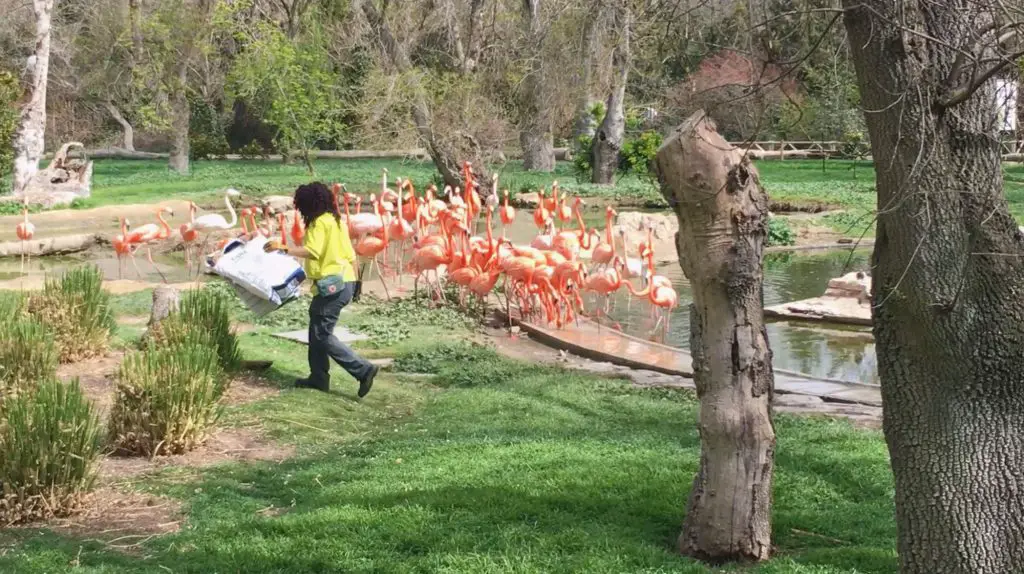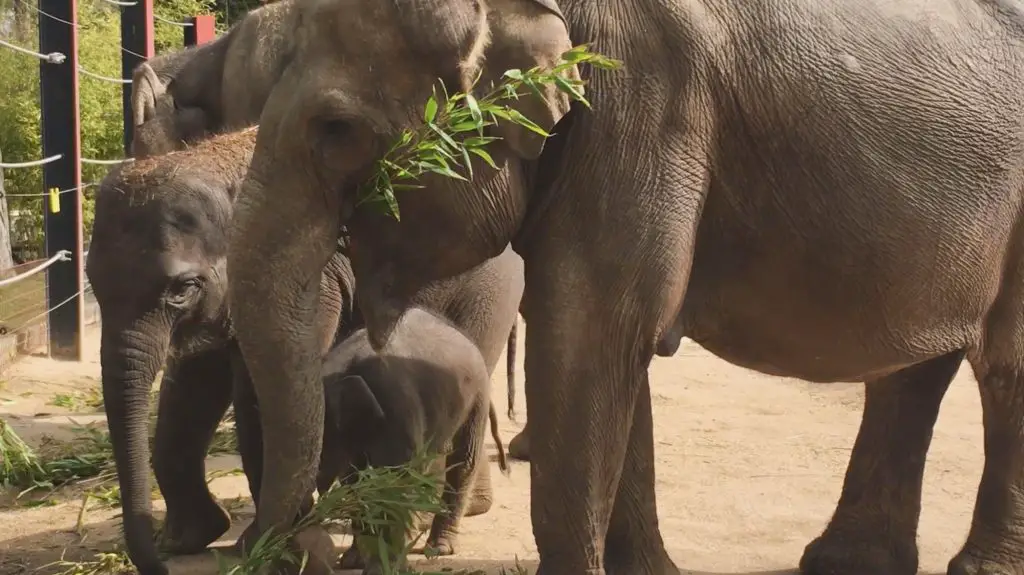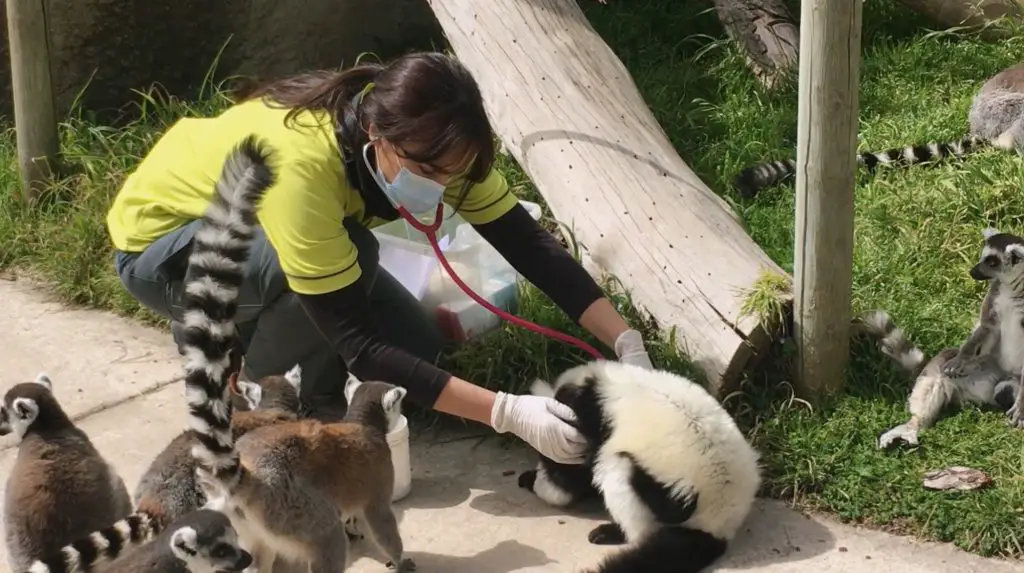Story By: Juan Fenandez Mayes, Sub-Editor: Joseph Golder, Agency: Newsflash
Newsflash/Zoo Madrid
This footage shows how the animals at Madrid Zoo spend their days during the strict COVID-19 lockdown measures in Spain.
The video, taken at the Madrid Zoo Aquarium in the central Spanish capital Madrid, shows flamingos walking in a large group as a zoo worker puts food out for them.
Two Iberian lynxes are seen butting heads and the male lynx named Kalama appears on camera shortly after.

Newsflash/Zoo Madrid 
Newsflash/Zoo Madrid 
Newsflash/Zoo Madrid 
Newsflash/Zoo Madrid
Zoo spokesperson Maria Jose Luis told Newsflash: “The behaviour shows bonding which lynxes do when they get on very well and feel comfortable with each other.”
The video also shows several other zoo animals including the elephants.
Maria Jose said that “there is a poll open” to name one of the baby elephants from a list made “by Spanish children”.
She said the options are “Hope, Sani, in honour of sanitary workers, and Felix, suggested by the zookeepers after Felix Rodriguez de la Fuente who was one of the first conservationists in Spain 40 years ago”.
Anteaters are also seen frolicking before the video shows two seals playing together and a dolphin being fed.
A veterinarian feeds and cares for several animals before a zookeeper is seen preparing a meal for the male panda named Bing Xing which arrived at the zoo in 2007.
Maria Jose said pandas are usually the most popular attraction in the zoo “because in all of Spain, they are only found in Madrid and children love them – and the dolphins too”.
Maria Jose said “the animals miss the interacting with members of the public, especially the primates. When you walk near them they stop to look at you. Some species are surprised by the silence”.
“Some animals need more interaction with the public than others, especially the large primates like the orangutans, gorillas and chimpanzees.”
When asked what has been the biggest effect on the zoo since the lockdown, she said: “What can I say? The absence of visitors” adding “it is a situation we are experiencing around the world and it affects everything”.
The zoo is home to five baby pandas which were born in Spain through artificial insemination and is the site where the first giant panda was born in Europe in 1982.
According to the latest figures from Johns Hopkins University, Spain has reported the world’s second-highest number of COVID-19 cases with 204,178 leading to 21,282 related deaths.
The country is expected to remain on lockdown until at least 9th May.
The ViralTab page is created by and dedicated to professional, independent freelance journalists. It is a place for us to showcase our work. When our news is sold to our media partners, we will include the link here.



